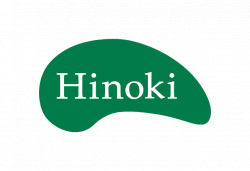Notification
CMS Roundup (May. 31, 2024)
- [注册人]Centers for Medicare & Medicaid Services (CMS)
- [语言]日本語
- [区]Baltimore, MD
- 注册日期 : 2024/05/31
- 发布日 : 2024/05/31
- 更改日期 : 2024/05/31
- 总浏览次数 : 57 人
- 当地商业的『城市指南』
-
- 墨西哥日本工商会(CÁMARA JAPONESA DE COMERCIO E I...

-
< 活动目的 > ~ 以下为章程摘录 ~ 1. 促进会员之间的友好关系,维护和促进会员的利益 2 . ・ 开展有助于促进日本和墨西哥之间经济交流的活动 3 . 开展与前项目的相关的其他活动 *活动的通用语言为日语。
3 开展与前项目标相关的其他活动 *活动的通用语言为日语。 +52 (55) 5593-2020メキシコ日本商工会議所
-
- 美国会计师事务所。我们为公司和个人在美国的报税和公司注册提供支持。我们可以为您提...

-
日本和美国之间的税收支持 ! 迅速的程序和善后处理 ! 日语 ・ 英语任一。
+1 (877) 827-1040Todd's Accounting Services / Mayumi Ozaki (尾崎会計事務所)
-
- 和平是该组织在夏威夷原住民区 "阿罗哈之乡 "开展活动的主题。

-
它介绍了欧胡岛上的夏威夷土著自治区。 阿罗哈之乡・是一个实施各种项目的空间,旨在提高人们对实现世界和平的认识。Puuhonua ・ O ・ Waimanalo ・ Village ( 正式名称为 ) Waimanalo
Village,位于欧胡岛 Waimanalo 地区的夏威夷原住民圣地,被选为家园。这个特殊的地方将成为实现 "承诺 "的基地,在全世界扩大和平圈。 "・阿罗哈之乡 ... +1 (808) 551-2240Land of Aloha
-
- ★ 新发型预约 ★ 以 "热情好客 "为理念,我们的目标是创建一个不仅让顾客,而...

-
所有员工均为日本人 ! 我们每天都以高质量的技术和热情好客的服务帮助您留下美好的印象 !。
+1 (408) 656-2766K's Hair Salon
-
- 我们希望孩子们成长为具有丰富想象力和思维能力的自信儿童 ! 我们的目标是在美国社...

-
在小熊幼儿园,孩子们在宽敞的草坪上与小伙伴们一起伸展身体、玩耍,学习日本文化和风俗习惯。 我们重视培养生活在美国的孩子们用日语交流和表达感受的能力。我们重视通过各种活动感受日本。日本保育员用优美的日语向孩子们传授日本的问候习惯、季节性活动、语言、季节性歌曲和手工游戏。 幼儿园Ⅱ(2-5 岁) ) 幼儿中心 ( 5 个月至 2 岁 )
+1 (310) 257-8880こぐま幼稚園
-
- 比萨店 "Goccia "就在北条海滩前,使用时令食材制作的比萨种类丰富。请您在...

-
在胡城海岸边的披萨店 "Goccia",您可以品尝到用时令食材制作的披萨,因此无论您来几次,都可以品尝到不同的菜单 ! 披萨很大,所以建议您分着吃几片 ! 宠物。
如果您有宠物,请与您的宠物一起在露台上享用。我们还提供外卖服务🏍。 +81-470-49-5755Goccia
-
- Kapalili Hawaii 在夏威夷独特的自然环境中提供瑜伽课程,并开发了一...
-
Kapalili ( Kapalili ) 在夏威夷语中的意思是"兴奋的感觉"。 这种兴奋的感觉能带来最大的正能量。 Kapalili Hawaii这个名字是指我们希望你能在日常生活中感受到 "激动的感觉",并以积极的方式度过每一天,心潮澎湃。
这首歌唱出了生活的乐趣。 我们提供的所有服务都是基于"感受激动和舒适 "的理念。 在这一主题下,我们创造了各种服... +1 (808) 485-9609Kapalili Hawaii
-

-
+1 (646) 590-3276Ramen Ishida
-
- 创意海滨餐厅 CAMA Kitchen,午餐专供汉堡,曾上过电视🍕 适合各种场合...

-
CAMA Kitchen 是一家烤箱烤披萨和创意美食餐厅,距离海边仅 30 秒钟路程。您可以带着宠物在露台上用餐,因此,如果您来海边散步,请到 CAMA Kitchen ♪.
(04) 7096-7307CAMA Kitchen
-
- 孕妇美容 ・ 产后美容 ・ 身体美容&全手面部美容,请访问木更津的 AnmaR ...

-
放松美容沙龙 AnmaR ≪AnmaR∩≫是木更津市的一家私人沙龙,在家🏡 🌸 拥有完整的美容菜单和在度假酒店水疗中心工作过的美容师 我们为许多顾客提供全手精油按摩,以改善他们的问题并提供治疗时间。 我们将为您提供酣畅淋漓的护理,让您精力充沛地迎接明天。
+81-80-7020-2023リラクゼーションエステサロン AnmaR
-
- 人气造型师Summer将为您展现魅力 ! 首次仅8折优惠 ! 女士 & 男士,多...

-
深受欢迎的造型师 Summer 将为您打造全新魅力 ! 首次就诊可享受八折优惠 ! 我们为女士和男士提供多种美发服务。剪发、烫发、染发、balayage、数码烫发、角蛋白护理、直发烫发、深层护理等,让您的秀发焕发最佳光彩。凡光临 Vivinavi 的顾客均可享受特别优惠 ! 如需预约,请随时拨打短信&电话:(408) 627-2457 ! 同时也非常欢迎新顾客 !。
+1 (408) 627-2457Summer Hair Salon
-
- 蜜蜂幼儿园鼓励孩子们发展独立能力和社交技能,每天在轻松愉快的氛围中度过,并给予他...

-
☆ 尔湾的智力日托 ☆ 注重发展不可量化的 "非认知 "技能,培养同情心 ・ 自我表达 ・ 和友好竞争。语言发展迟缓
双语准备 ・ 可提供发音练习课程 ! 大量使用精细运动技能的活动,促进大脑发展 ! Instagram → @honeybee328日托 位于尔湾的日裔美国人日托 / 日托 ☆ 为父母和孩子提供乐趣和联系 ! 内容因年龄而异 ( 体育活动、手工、故事书、歌曲和语言训... +1 (310) 801-2517Honey Bee Learning Center
-
- 自己思考、自己决定、自己行动 "是我们的教育目标。学生可以选择人数有限的面授班(...

-
一位拥有 18 年海外儿童教育机构校长经验的魅力数学教师,开设了一间让孩子们放心的教室。 我们采用独特的 "螺旋式学习法",并与日本专门的海外儿童教育机构合作,迄今为止,我们在早稻田庆应高中入学考试中取得了 100% 的通过率。 我们掌握着大量有关接收归国留学生的学校的信息,对高等教育方面的建议绝对有信心。 补充学校制定了每月 "德育目标",不仅加强学习指导,还加强生活指导,使学生成长为受...
+1 (949) 932-0858ひのき補習校・学習塾Hinoki
-
- 这家拉面馆的新鲜贝类汤令人上瘾,曾荣获 "TRY 拉面奖" 🍜 宽敞的座位让您可...

-
汤中使用了大量在木更津捕获的贝类,一定会让您爱不释手 ✨ 这里有 15 个停车位。
+81-438-53-7937TokyoBay Fisherman's Noodle
-
- 从婴儿到老年人,每个人都能在音乐课上找到乐趣。我们的教学水平从初级到高级不等。请...

-
从婴儿到老年人,每个人都能在音乐课上找到乐趣。我们的教学水平从初级到高级不等。请先联系我们。 ~ 音乐课程 ~ 钢琴 小提琴 卡拉 OK 声乐 ( Solfège ) 萨克斯 节奏 (婴儿,幼儿、儿童班) 节奏 绝对音色班 音乐高考 (唱名、乐理、练耳) 高级脑力训练音乐班 尤克里里 作曲 ・ 编曲班级、课程 短期音乐留学 ( 夏季 ・ 冬季 ) 专业 ・ 学院...
+1 (808) 741-9088Renee's Music Studio

Today, the Centers for Medicare & Medicaid Services (CMS) provides an at-a-glance summary of news from around the agency.
*CMS Approves a Five-Year Extension of Delaware’s Diamond State Health Plan Demonstration *
May 17: CMS approved a five-year extension of the "Delaware Diamond State Health Plan (DSHP) Section 1115 Demonstration.” [ https://www.medicaid.gov/medicaid/section-1115-demonstrations/downloads/de-dshp-dmntn-appvl-05172024.pdf ] This approval will sunset a waiver of retroactive eligibility on January 1, 2025, and enable the state to provide three months of retroactive eligibility for all eligible Medicaid enrollees. The approval also adds three new benefits, which allow the state to: (1) Expand the state-funded pilot to provide home-delivered food and eighty diapers per week to postpartum members and babies, which will reach low-income postpartum members with disproportionately high rates of food insecurity and inequitable adverse maternal and birth outcomes; (2) Provide contingency management services for pregnant and post-partum Medicaid members with stimulant use disorder or opioid use disorder; and (3) Include children's dental services in the demonstration’s managed care delivery system.
*CMS Approves Three New Benefits Through Amendment to Tennessee's “TennCare III” Medicaid Section 1115 Demonstration *
May 17: CMS approved an amendment to Tennessee's TennCare III Medicaid section 1115 demonstration [ https://www.medicaid.gov/medicaid/section-1115-demonstrations/downloads/tn-tenncare-iii-demo-aprvl-amndmnt-5.pdf ]. This amendment adds three new benefits: (1) Expansion of Medicaid eligibility for parents and caretaker relatives of dependent children up to 100 percent of the federal poverty level (FPL). By increasing Medicaid eligibility for up to 100 percent of the FPL, Tennessee will now provide Medicaid coverage for this group up to the FPL threshold at which individuals become eligible for federally subsidized premium assistance for health coverage available on the Federally Facilitated Marketplace (FFM). Closing the coverage gap between eligibility for the two health insurance programs helps to lower the uninsured rate and increase access to medically necessary health care. In addition, the amendment includes (2) Approval of a new benefit to provide coverage of 100 diapers per month per child, for families with children under the age of two; and (3) Authority for the state to make several home- and community-based services (HCBS) enhancements, with a focus on employment services and supports, to promote increased independence for individuals with disabilities in their homes, communities, and workplaces.
*CMS Releases Updated Health Equity Fact Sheet Outlining Goals and How Health Equity Actions Align with CMS’ Six Strategic Pillars*
May 24: CMS released an updated Health Equity Fact Sheet [ http://www.cms.gov/files/document/health-equity-fact-sheet.pdf ]on the Health Equity page [ https://www.cms.gov/pillar/health-equity ] and the Strategic Plan page/strategic pillars [ https://www.cms.gov/about-cms/what-we-do/cms-strategic-plan ] page. CMS infuses health equity — the ability for everyone to obtain their optimal health — in everything it does. CMS programs provide health coverage to nearly one in two Americans and are critical to helping to ensure that individuals and families have access to quality health care. CMS’ goal is to ensure that every person can access the care they seek at an affordable cost, aim to eliminate avoidable differences in health outcomes, and to provide the care and support people need to thrive. Health equity is foundational to the CMS Strategic Plan and addressed within each of our strategic pillars. The CMS health equity strategy builds on the Biden-Harris Administration’s commitment to advancing racial equity and support for underserved communities through the federal government, as described in President Biden’s Executive Orders 13985 and 14091. The Health Equity fact sheet outlines CMS’ Health Equity goals and how CMS’ health equity actions align with our six strategic pillars.
*CMS Announces Updates to Include Marriage and Family Therapists and Mental Health Counselors for Hospice, Rural Health Clinics, and Federally Qualified Health Centers*
May 28: CMS announced in a memo [ https://www.cms.gov/medicare/health-safety-standards/quality-safety-oversight-general-information/policy-memos-states/state-operations-manual-som-appendix-m-hospice-and-appendix-g-rural-health-clinic-rhc-and-federally ] to State Survey Directors updates to the Hospice Conditions of Participation (CoPs), the Rural Health Clinic (RHC) Conditions for Certification (CfCs), and the Federally Qualified Health Center (FQHC) Conditions for Coverage (CfCs) to implement provisions included in the Consolidated Appropriations Act (CAA), 2023. The hospice CoPs’ update requires the hospice interdisciplinary group to include at least one social worker, marriage, and family therapist (MFT), or mental health counselor (MHC). Additionally, the RHC and FQHC CfCs update the staffing and personnel requirements to include MFTs and MHCs as part of the collaborative team approach to providing services. The RHC and FQHC CfC definitions were updated to include MFTs and MHCs as recognized staff alongside other health care professionals who are already eligible to provide services, and the definition of “nurse practitioner” was revised to align with current standards of professional practice.
*CMS Releases Infographic on Health Care Utilization of Pregnancy-Related Care in Medicaid and the Children’s Health Insurance Program *
May 28: CMS released an infographic [ https://www.medicaid.gov/medicaid/benefits/downloads/2024-maternal-health-at-a-glance.pdf ] overview of people who are Medicaid and Children's Health Insurance Program (CHIP) recipients seeking pregnancy-related care and those with a recent live birth. More than one out of every four recipients of Medicaid and CHIP are individuals in their reproductive years (ages 15-49), and Medicaid finances about 41 percent of all births in the United States. CMS is uniquely positioned to improve the quality of maternity care, improve perinatal outcomes, and reduce disparities through quality improvement and measurement and supporting value-based care. This infographic provides an overview of the demographics, access to care, health status, health outcomes, risk factors, and health care utilization among this population.
*CMS Releases Fifth Annual Report on Evaluation of Bundled Payments for Care Improvement Advanced Model*
May 29: CMS released the fifth annual report on the evaluation of the Bundled Payments for Care Improvement Advanced (BPCI Advanced) Model. [ https://www.cms.gov/priorities/innovation/data-and-reports/2024/bpci-adv-ar5 ]The BPCI Advanced Model tests whether holding participants financially accountable for the cost and quality of health care services during an episode can reduce Medicare spending while maintaining or improving quality of care. This is the first report assessing the model after significant changes were implemented in Model Year 4 (2021) to improve the likelihood of achieving Medicare program savings and to expand care redesign activities to more patients. The report found that the BPCI Advanced Model resulted in net savings to Medicare in 2021, estimated to be $465 million, offsetting losses in earlier model years, and had varied quality results.
*CMS Announces a Request for Applications for Participants in the Accountable Care Organizations Primary Care Flex Model (ACO PC Flex Model)*
May 30: CMS announced a Request for Applications (RFA) [ https://www.cms.gov/files/document/aco-pc-flex-rfa.pdf ] for participation in the Accountable Care Organizations (ACO) Primary Care (PC) Flex Model. The ACO PC Flex Model is a new, voluntary payment model that will focus on advanced primary care delivery in the Medicare Shared Savings Program (Shared Savings Program). The model will launch on January 1, 2025, and run for five years. CMS has made improving primary care a cornerstone of its strategy for improving access to high-quality, person-centered care. The ACO PC Flex Model is the first model to provide prospective, population-based payments based on the average primary care spending of the region in which an ACO operates, as opposed to the historical experience of the ACO. The model is being tested and requires participation within the Shared Savings Program to provide a streamlined pathway to adopt lessons learned from the model and to attract new ACOs to the program. The deadline to submit an application to the Shared Savings Program is June 17, 2024. The ACO PC Flex Model increases funding for primary care delivered by low-revenue ACOs in the Shared Savings Program so that they can provide advanced primary care, improve people’s experience and outcomes, and save on unnecessary health care spending. Interested ACOs must first apply to the Shared Savings Program [ https://www.cms.gov/medicare/payment/fee-for-service-providers/shared-savings-program-ssp-acos/application-types-timeline ]. An ACO PC Flex Application Overview Webinar will be held June 6, 2024, 2:00 - 3:30 pm ET. Register to attend the webinar here [ https://deloitte.zoom.us/webinar/register/WN_0-RfYgJBSjGuf2OwOrtKiw ].
*CMS Releases Diabetes Impact Report Summarizing Advances Made in Improving Diabetes Care*
May 30: CMS released a CMS Diabetes Strategy — Impact Report [ https://www.cms.gov/files/document/cms-diabetes-strategy-2024-english.pdf ]on CMS’ Office of Minority Health (OMH) website, updating the diabetes work happening at CMS. This resource summarizes the advances made in improving diabetes care in Medicare in calendar year (CY) 2023, including prevention, screening, and diagnosis, as well as access to treatment, services, and support. The report was also made available at the CMS Health Equity Conference, which occurred this week.
*CMS Announces the Release of 2022 Quality Payment Program Performance *
May 30: CMS announced that the 2022 Quality Payment Program (QPP) performance information has been released [ https://www.cms.gov/files/document/2022-quality-payment-program-performance-information-published-medicaregov-compare-tool-fact-sheet.pdf ]for doctors, clinicians, groups, virtual groups, and Accountable Care Organizations (ACOs) to clinician and group profile pages on the Medicare.gov compare tool [ https://www.medicare.gov/care-compare/ ] and in the Provider Data Catalog (PDC) [ https://data.cms.gov/provider-data/ ]. CMS is required to report Merit-based Incentive Payment System (MIPS) eligible clinicians’ final scores and performances under each MIPS performance category, names of eligible clinicians in Advanced Alternative Payment Models (APMs) [ https://qpp.cms.gov/apms/advanced-apms ] and, to the extent feasible, the names and performance of such Advanced APMs. Performance information for doctors and clinicians is displayed using measure-level star ratings, percent performance scores, and checkmarks. Medicare patients and caregivers can use the compare tool on Medicare.gov to search for and compare doctors, clinicians, and groups who are enrolled in Medicare. Publicly reporting 2022 QPP performance information helps empower patients to select and access the right care from the right provider. The announcements will also direct doctors and clinicians to the Care Compare: Doctors and Clinicians Initiative page for informational materials about the published performance data.
*CMS Announces a Request for Applications for the Second Cohort of* *Individuals for the Enhancing Oncology Model*
May 30: CMS announced a Request For Applications (RFA) for a second cohort of participants in the Enhancing Oncology Model (EOM) [ https://www.cms.gov/priorities/innovation/media/document/eom-rfa-2024 ] that will begin on July 1, 2025. EOM is a voluntary payment model intended to transform care for cancer patients. EOM aims to improve care coordination, quality, and health outcomes for patients while also holding oncology practices accountable for total costs of care to make cancer care more affordable, equitable, and accessible for patients and Medicare. CMS also made notable changes to the model, including extending the model by two years, making a higher monthly payment for enhanced services, and raising the threshold for the point at which participants are required to pay back CMS for costs related to their patients’ care. The RFA with detailed information about participation and the design of the EOM is available on the EOM website [ https://innovation.cms.gov/innovation-models/enhancing-oncology-model ] beginning July 1, 2024. The application portal for interested applicants will be open from July 1, 2024, to September 16, 2024. Further details on how to apply are forthcoming.
*CMS Releases the Final Evaluation Report for the Oncology Care Model *
May 30: CMS released the Evaluation of the Oncology Care Model Final Report [ https://www.cms.gov/priorities/innovation/data-and-reports/2024/ocm-final-eval-report-2024 ]on cms.gov. In February 2015, CMS invited oncology physician group practices to participate in the Oncology Care Model (OCM), an alternative payment model (APM) based on six-month episodes for cancer care for people with Fee-for-Service (FFS) Medicare undergoing chemotherapy treatment. The six-year OCM began on July 1, 2016, and operated for 11 consecutive six-month performance periods (PPs). The last episodes ended on June 30, 2022. OCM was designed to improve the costs and quality of oncology care through payments for monthly enhanced oncology services and financial performance. OCM resulted in lower health care expenditures during the six-month episode of care, but these reductions were not sufficient to fully offset model payments. While practices reported substantial efforts to transform care, these changes did not always lead to improvement in clinical and quality outcomes relative to non-participating practices. Included with the evaluation report is a Patient Perspectives Report, written for a patient audience that summarizes findings from patient interviews about their experiences with cancer care.
*CMS Announces Extension of State Reporting of Medicaid Renewals Outcomes*
May 30: CMS released a State Health Official (SHO) letter [ https://www.medicaid.gov/federal-policy-guidance/downloads/sho24002.pdf ]announcing that it is extending state reporting of certain Medicaid and Children’s Health Insurance Program (CHIP) metrics that states first started reporting during the return to full Medicaid and CHIP renewals, also known as “unwinding.” As described in the SHO, state reporting on renewal outcomes will continue after the Consolidated Appropriations Act, 2023, requirements end on June 30, 2024. CMS will continue reporting state and national data publicly to continue providing transparency into Medicaid and CHIP eligibility and enrollment processes as well as individuals’ ability to renew their coverage.
*Other Recent Releases: *
May 21: Biden-Harris Administration Launches New Option to Report Potential Violations of Federal Law and Continue to Promote Patient Access to Stabilizing Emergency Care [ https://www.cms.gov/newsroom/press-releases/biden-harris-administration-launches-new-option-report-potential-violations-federal-law-and-continue ]
###
CMS, an agency within the U.S. Department of Health and Human Services, serves the public as a trusted partner and steward, dedicated to advancing health equity, expanding coverage, and improving health outcomes. The agency protects public health by administering the Medicare program and working in partnership with state governments to administer Medicaid, CHIP, and the Health Insurance Marketplace.
Get CMS news at cms.gov/newsroom [ https://www.cms.gov/newsroom ], sign up for CMS news via email [ https://www.cms.gov/About-CMS/Agency-Information/Aboutwebsite/EmailUpdates ], and follow CMS on Twitter @CMSgov [ https://twitter.com/cmsgov ]
Centers for Medicare & Medicaid Services
________________________________________________________________________
You're getting this message because you subscribed to get email updates from the Centers for Medicare & Medicaid Services (CMS) [ http://www.cms.gov/ ].
Update your subscriptions, modify your password or email address, or stop subscriptions at any time on your Subscriber Preferences Page [ https://public.govdelivery.com/accounts/USCMS/subscriber/edit?preferences=true#tab1 ]. You will need to use your email address to log in. If you have questions or problems with the subscription service, please contact subscriberhelp.govdelivery.com [ https://subscriberhelp.govdelivery.com/ ].
This service is provided to you at no charge by Centers for Medicare & Medicaid Services (CMS) [ http://www.cms.gov ].
________________________________________________________________________
This email was sent to mshinji3056@gmail.com using GovDelivery Communications Cloud 7500 Security Boulevard · Baltimore MD 21244
body .abe-column-block {min-height: 5px;}